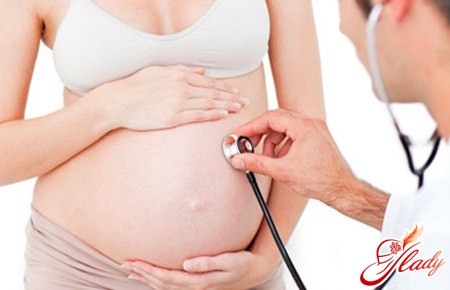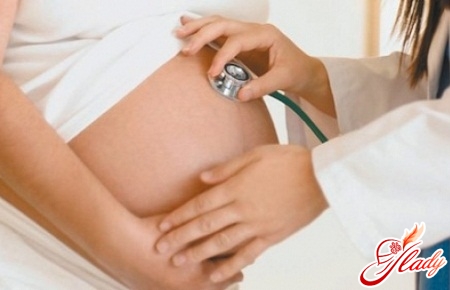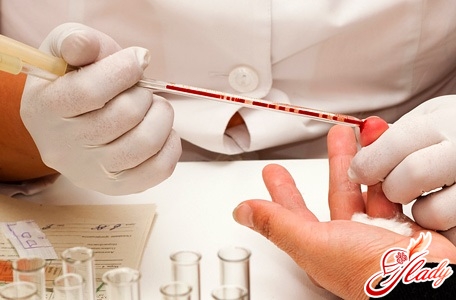 Hepatitis C and pregnancy is one of the most urgentproblems for today. Unfortunately, very often a woman learns that hepatitis C is infected during pregnancy. And it's not accidental - it's during pregnancy that all women without exception are screened carefully for the presence of a variety of infections, including hepatitis C. Medical statistics indicate that about every twentieth pregnant woman is diagnosed with hepatitis C. Of course, after learning about this, the future mother is upset, and at times and much frightened. And doctors, alas, do not always give exhaustive information to my mother. And of course there are a lot of questions, of course, because it's not just about mother's health, but also about the health of the baby.
Hepatitis C and pregnancy is one of the most urgentproblems for today. Unfortunately, very often a woman learns that hepatitis C is infected during pregnancy. And it's not accidental - it's during pregnancy that all women without exception are screened carefully for the presence of a variety of infections, including hepatitis C. Medical statistics indicate that about every twentieth pregnant woman is diagnosed with hepatitis C. Of course, after learning about this, the future mother is upset, and at times and much frightened. And doctors, alas, do not always give exhaustive information to my mother. And of course there are a lot of questions, of course, because it's not just about mother's health, but also about the health of the baby.
How does the presence of the virus affect the course of pregnancy?
Immediately I would like to reassure future mothers -The presence of the hepatitis C virus in the body during pregnancy and the development of the baby does not have any negative impact. Moreover - as a rule, during pregnancy the progression of the disease is suspended. For example, liver tests come back to normal already in the second trimester of pregnancy. Pregnancy and hepatitis with are quite compatible. However, of course, after the birth of the baby the disease again begins to rapidly increase. Moreover - it is worth noting the fact that doctors do not consider the presence in a woman of a hepatitis C virus to contraindications to pregnancy and childbirth. Even if a woman knows in advance about her illness, she can become pregnant and give birth to a baby. As already mentioned above, the virus in no way affects the process of conception, nor the bearing and birth of a child. Of course, you can hear a very large number of various horror stories, but do not take them too seriously. Of course, infected hepatitis women will have to take certain precautions and, perhaps, a little more often to visit a gynecologist, but, in general, pregnancy usually ends up quite safely. In any case, medicine does not know the cases of the birth of green peas in babies.
Threat of infection of the child
Another issue that is quite strongworries about future mothers - this is what the likelihood of that during pregnancy is infected and the baby. In principle, such a risk does exist. However, it is not so great - it fluctuates within 3-10%. On average, this probability is equal to five percent, which is a very low indicator. However, this probability still exists. Therefore, we can not not talk about how the virus can be transmitted from mother to child. In principle, there are only three modes of transmission of infection:
- Intranatally
This group includes all cases of infection,which occur during the birth itself. This can happen due to the ingestion of maternal blood into the baby's body. Fortunately, this happens very rarely. But during the course of pregnancy there are almost no cases of infection.
- Prenatal and postnatal
This method includes all casesinfection occurring during breastfeeding and caring for the baby. In principle, in the event that the mother knows and respects the simplest preventive measures, the likelihood of infecting the baby is also very, very small. 
Treatment of hepatitis C during pregnancy
The main pharmacological drugs thatare used to treat a disease such as hepatitis C, are ribavirin and interferon-α. However, numerous studies have reliably established the fact that their impact on the child's body is very negative. And so doctors during pregnancy are extremely strongly advised to stop the treatment of hepatitis C while the baby is pregnant. However, in some cases doctors still have to intervene and prescribe a future treatment for the mother. As a rule, such measures must be resorted to if the future mother has pronounced signs of cholestasis. Her state of health in this case worsens, and leave it without attention is impossible. Although this happens very rarely - only in one case out of 20. Most often in this case, doctors prescribe those drugs that do not harm the development and health of the future baby. As a rule, such treatment is a course of injections of drugs, which basically contain ursodeoxycholic acid. However, it goes without saying, in each case the doctor selects the treatment strictly on an individual basis, taking into account all the individual features of the organism of the future mother.
Method of delivery in hepatitis C
Doctors for a long time conduct the original statistics of that,how the methods of delivery affect the probability of infection of the baby with the hepatitis C virus. However, no unambiguous results have been obtained - in principle, the probability of infection is approximately equal to that with natural delivery, which is at cesarean section. However, if a woman has poor liver function, in some cases, doctors may insist on having a caesarean section. Typically, this situation occurs in about one in fifteen cases. In all the rest - doctors decide on the method of delivery, based on the general state of health. Also, many pregnant women worry that they will have to give birth in infectious maternity hospitals. However, this is not always the case - most often they give birth to all on a general basis, in ordinary maternity homes.
Breast-feeding
Sometimes hepatitis C-infected womenrefuse breastfeeding, mistakenly believing that by doing so they increase the risk of infection of the baby. However, this is not so - the concentration of the hepatitis C virus in breast milk is so small that it is unlikely to infect a child with a woman. And all those cases of hepatitis C infection that occur during breastfeeding, are due to the fact that the baby's body gets the mother's blood. Perhaps you will be surprised - how can this happen? Yes, it's very simple! Surely, all moms know what nipples are. After all, even with minor microtraumas of the nipples during feeding, a small amount of blood enters the baby's mouth. And if the mucous in the crumb will be microtraumas, there is a risk of infection of the child. And the higher the mother's viral load, the higher the risk of infection. 
The child has antibodies to the virus. What to do?
As a rule, all children born to mothers withhepatitis C, immediately after birth is examined. And, most often, antibodies to hepatitis C are found in the blood serum. However, one should not despair and panic at once - practically in all such cases these antibodies get into the child's organism from the mother's body, with blood flow, through the placenta. As a rule, these antibodies disappear without a trace by the end of the child's first year of life, but in very rare cases they can persist for a longer period of time - up to two years. However, this does not mean that parents should simply forget about this problem - repeated tests must be taken every three months, so that doctors can make sure that everything is in order.
Vaccination against hepatitis B and pregnancy
Talking about hepatitis C, one can not help but mentiona problem such as hepatitis B and pregnancy. Unfortunately, no woman is insured against this disease. Strictly speaking, the risk of infection of the child is not too great even in this case, so do not panic. Although, needless to say, the expectant mother needs intensive medical treatment, often hospitalization is required. Very often the future mother hears advice to do a prophylactic vaccination against hepatitis B. However, doctors treat this recommendation very, very skeptically - after all, the effect of antigens on the developing organism of the baby. That's why they do not recommend exposing a baby to undue risk. The only case when vaccination against hepatitis B is justified is a really high risk of infection of a pregnant woman. For example, a woman was in the hearth of the epidemic of the disease. Then, of course, the future mother still needs to make sure. However, pay attention to the fact that in the event that a woman has vaccinated, not knowing about her pregnancy yet, to worry, let alone interrupting pregnancy is not worth it - there is practically no risk for the child. And during breastfeeding, you can do an inoculation without any fear. In any case, if the future mother will face such a disease as hepatitis, she should not at all engage in self-medication. The first, and most importantly, what it should do is to seek medical help from a doctor. The doctor will be able to assess the potential danger to the baby, and give the future mother the necessary recommendations. We advise you to read:









